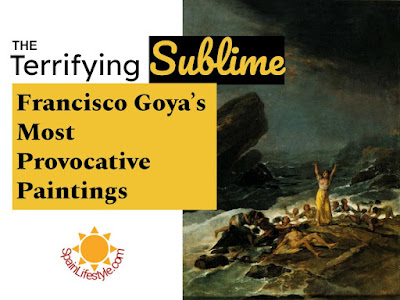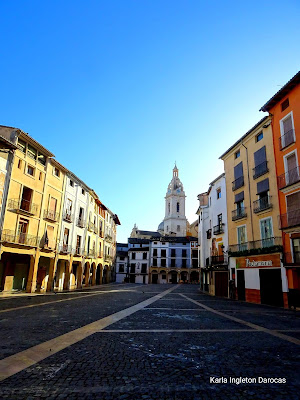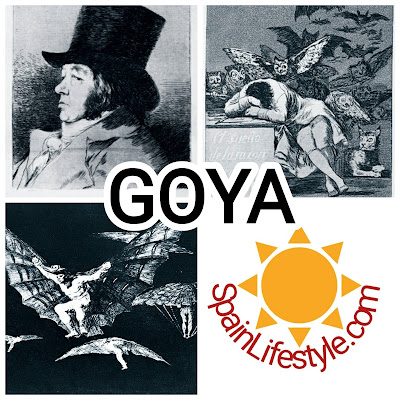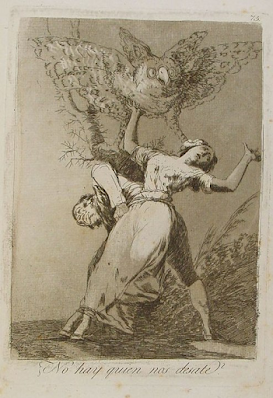IN THIS LECTURE we will look at the visual development of the neoclassical style of painting in Spain from the mid-18th to the early 19th century. We will look at the most important painters of this period and their defining works. We will also examine the elements that characterise Spanish Neoclassicism as an academic standard that would prevail into the modern era.
THE EVOLUTION OF SPANISH NEOCLASSICAL ARTISTS & PAINTINGS * tba
IN THIS LECTURE we will look at the visual development of the neoclassical style of painting in Spain from the mid-18th to the early 19th century. We will look at the most important painters of this period and their defining works. We will also examine the elements that characterise Spanish Neoclassicism as an academic standard that would prevail into the modern era.
THE TERRIFYING SUBLIME * GOYAS MOST PROVOCATIVE PAINTINGS * TBA
In this lecture we explore a genre of visual art that Goya spearheaded. While others were painting beautiful pictures, Goya was breaking the boundaries of established art aesthetics. The paintings in this lecture were not commissioned works, but self-created, so Goya had the freedom to realise his ideas
* Report by Karla Ingleton Darocas. Hons. B. A. (KarlaDarocas.com)
JAVIER GOYA AND HIS DOG
DOGS OF LEISURE
After the war between Spain and the First French Empire, which began in 1808 with the invasion of Napoleonic troops and ended in 1814 with the return of Fernando VII to Spain and absolute power, Spain was destined to shake up its social structures with the emergence of diversified social classifications.
There were still the noble families with land titles and wealth, and of course the peasants who owned nothing, but now there was a newly emerged stratum in Spanish society based on the wealth created by trade, manufactures, modern agriculture, retail, professions such as doctors and lawyers, and even arts and crafts. These self-employed people and family businesses formed a social class based on materialism and the pursuit of respectability called the bourgeoisie.
The bourgeoisie was now the class of people who wanted companion dogs to demonstrate their ability to spend their leisure time, and so the miniature dog breeds made a big comeback. Small dogs were now a symbol of success, a happy family life and a home because they had a good income.
REVIEW * CLASS TRIP TO XATIVA FINE ART MUSEUM * OCT.16, 2022
ART TALK * GOYA GRANDEUR * tba
LECTURE * GOYA * LOS CAPRICHOS & LOS DISPARATES - TBA
LECTURE is about a particular phase in Francisco Goya's life that led to his prolific manifestation of etchings and aquatint caricatures.
GOYA ATTACKED ARRANGED MARRIAGES WITH HUMOUR
Francisco José de Goya y Lucientes (1746 - 1828) paintings, drawings and engravings reflected contemporary historical upheavals. He supported the new enlightened and educated spirit of the times by opposing arranged marriages. At that time, the function of marriage was merely a means to promote the economic or social success of the family and ignored the pain that people suffered.
** Report by Karla Ingleton Darocas. Hons. B. A. (KarlaDarocas.com)
REVIEW * CLASS TRIP * EXHIBITIONS * Sorolla Childhood & Paths of Modernity
The Bancaja Foundation exhibition of 86 paintings by Sorolla dedicated to childhood was wonderful. The exhibition rooms were spacious, and the walls were painted a muted grey so that the unique Mediterranean colours he used in his painting really stood out.
* Report by Karla Ingleton Darocas. Hons. B. A. (KarlaDarocas.com)
-
THE ENIGMA Dionisio Fierros (1827-1894) was a Spanish Romantic painter who painted a “Vanitas”, an allegorical still life, for the Marquis ...
-
"Galatea of the Spheres"," painted by the surrealist artist Salvador Dalí in 1952, is a remarkable testimony to Dalí's u...
-
One of the most enduring and frequently depicted themes in the history of art—especially in the Western tradition—is the image of the moth...











